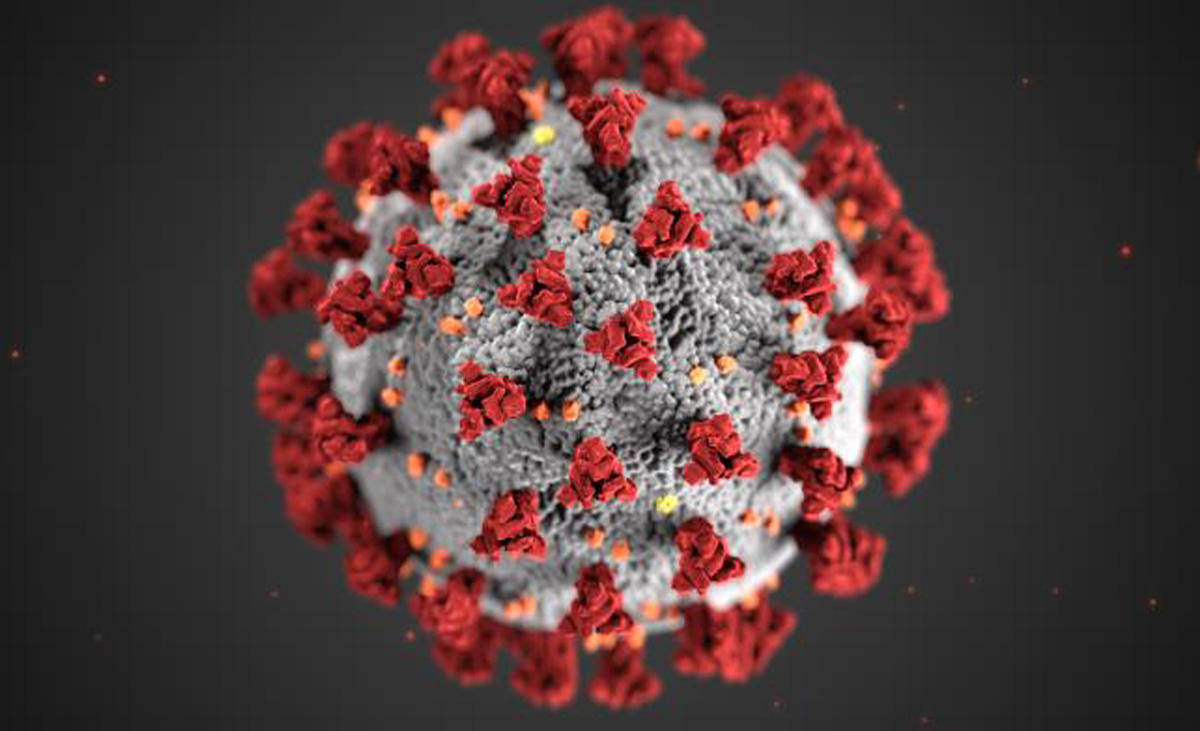
Study Identifies "Mother" of all SARS-CoV-2 Genomes; Reveals Earlier COVID-19 Timeline
November 11, 2020| |
Through data analysis, a study has provided new insights into the early mutational history of SARS-CoV-2. Around the world, scientists have been trying to find the first case of SARS-CoV-2 infection or "patient zero" to understand how the novel coronavirus may have jumped from an animal host to infect the first human, as well as the history of how the SARS-CoV-2 viral genome mutated over time and spread globally. Despite major efforts, no one to date has identified the first case of SARS-CoV-2 human transmission.
In the absence of patient zero, a Temple University research team may have found the next best thing: the progenitor or "mother" of all SARS-CoV-2 genomes and its early offspring strains, which have subsequently mutated and spread to dominate the world pandemic. Using data analysis, the researchers analyzed 29,681 SARS-CoV-2 genomes, each containing at least 28,000 bases of sequence data. These genomes were sampled between December 2019 and July 2020, representing 97 countries worldwide.
Sudhir Kumar, director of the Institute for Genomics and Evolutionary Medicine at Temple University said that they have now reconstructed the progenitor genome and mapped where and when the earliest mutations happened. Kumar's team uncovered a predicted sequence of the progenitor (mother) genome of all SARS-CoV-2 genomes (proCoV2). In the proCoV2 genome, they identified 170 non-synonymous (mutations that cause an amino acid change in a protein) and 958 synonymous substitutions compared with the genome of a closely-related coronavirus, RaTG13, found in a Rhinolophus affinis bat. While the intermediary animal from bats to humans is still unknown, this amounted to a 96.12% sequence similarity between proCoV2 and RaTG13 sequences.
The Temple University research also revealed an earlier timeline and original timing of the start of the pandemic. They found the proCoV2 virus and its initial descendants arose in China and that a population of strains with as many as six mutational differences from proCoV2 existed at the time of the first detection of COVID-19 cases in China. With estimates of SARS-CoV-2 mutating 25 times per year, this meant that the virus must already have been infecting people several weeks before the December 2019 cases.
For more details, read the article on Temple University News.
| |
You might also like:
- Most Comprehensive Map of SARS-CoV-2 Genomic Structures Now Published
- Researchers Identify Possible Immune Targets in SARS-CoV-2 Genome
- Scientists Clone SARS-CoV-2 Genome Using Quick Yeast-Based Method
Biotech Updates is a weekly newsletter of ISAAA, a not-for-profit organization. It is distributed for free to over 22,000 subscribers worldwide to inform them about the key developments in biosciences, especially in biotechnology. Your support will help us in our mission to feed the world with knowledge. You can help by donating as little as $10.
-
See more articles:
-
News from Around the World
- International Online Discourses Provide Global Updates on Animal Gene Editing and Biotechnology
- UN Report Pinpoints Potential Hotspots of Famine
- GM Crops to Boost Food and Nutrition Security in Ghana
- IITA and CIP Awarded Certification in Stewardship Excellence
- 30 Years of Experiments Predict Future for Major Crops
- South Australia Rejects 11 Proposals to Ban GM Crops, Says GM Moratorium's Price Premiums Only a Myth
- Australian OGTR Issues License for Commercial Release of Herbicide Tolerant Cotton
- Invitation to the 3rd Asian Short Course on Agri-biotech, Biosafety Regulation, and Communication
-
Research Highlights
- Cisgenic Potatoes Do Not Disrupt Soil Microsystems
-
Plant
- Genome Editing in Plants using CRISPR Type I-D Nuclease
- Heat Tolerance Gene in Corals Found Using Gene Editing
-
Health
- Study Identifies "Mother" of all SARS-CoV-2 Genomes; Reveals Earlier COVID-19 Timeline
- Researchers Find "Hidden Gene" in COVID-19 Virus
-
Read the latest: - Biotech Updates (February 18, 2026)
- Gene Editing Supplement (January 28, 2026)
- Gene Drive Supplement (February 22, 2023)
-
Subscribe to BU: - Share
- Tweet

